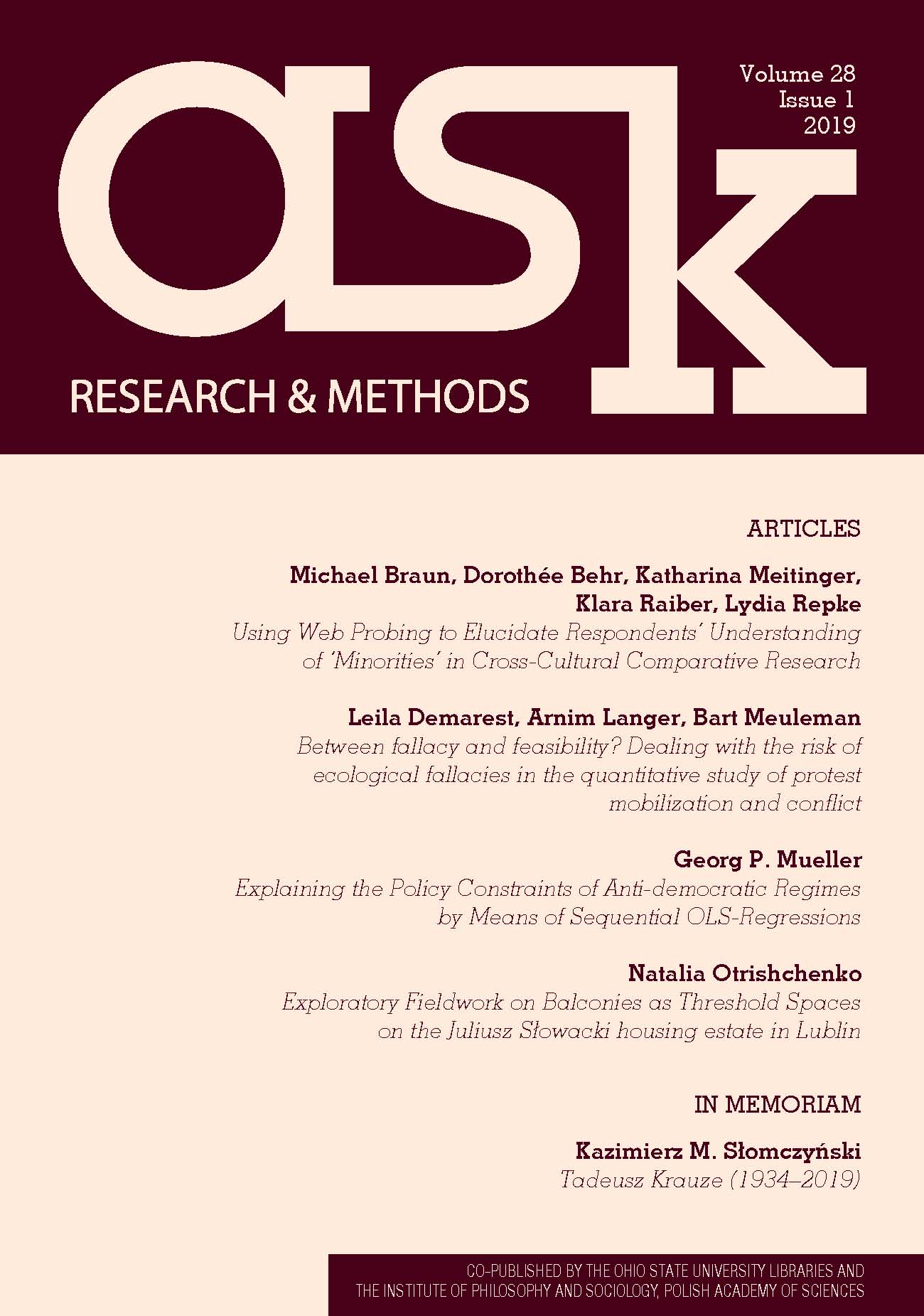Between fallacy and feasibility? Dealing with the risk of ecological fallacies in the quantitative study of protest mobilization and conflict
Between fallacy and feasibility? Dealing with the risk of ecological fallacies in the quantitative study of protest mobilization and conflict
Author(s): Leila Demarest, Arnim Langer, Bart MeulemanSubject(s): Sociology
Published by: Instytut Filozofii i Socjologii Polskiej Akademii Nauk
Keywords: ecological fallacy; methodological individualism;conflict studies; social movements; protests;
Summary/Abstract: In recent years, the quantitative study of conflict has increasingly focused on small-scale and/or localized conflicts in the developing world. In this paper, we analyze and critically reflect upon a major methodological shortcoming of many studies in this field of research. We argue that by using group- or macro-level empirical data and modelling techniques, while at the same time theoretically underpinning observed empirical associations with individual-level mechanisms, many of these studies risk committing an ecological fallacy. The individual-level mechanism on which many studies rely concerns the presence of grievances which mobilize people to participate in contentious politics. This motivational approach was also present in early studies on protest mobilization in Western societies, which often relied on similar research designs. However, subsequent advances in this literature and the use of methods that were targeted more directly at the individual level uncovered that grievances alone cannot explain mobilization and that organizational capabilities and complex psychological mechanisms of belonging also form part of the puzzle. While drawing on conflict events as well as survey data from Africa, we demonstrate empirically that here, as well, inferring micro-level relations and dynamics from macro-level empirical models can lead to erroneous interpretations and inferences. Hence, we argue that to improve our understanding of conflict mobilization in the developing world, especially for conflicts with low levels of violence, it is necessary to substantially expand our methodological toolbox beyond macro-level analyses.
Journal: ASK. Research & Methods
- Issue Year: 2019
- Issue No: 28
- Page Range: 21-42
- Page Count: 22
- Language: English

